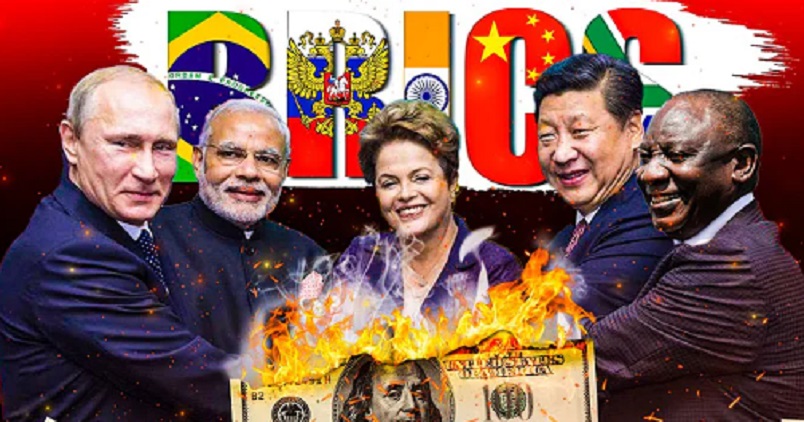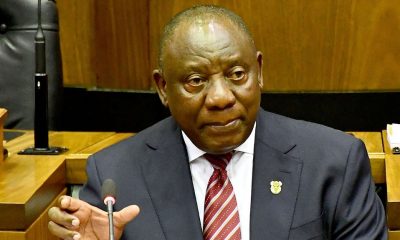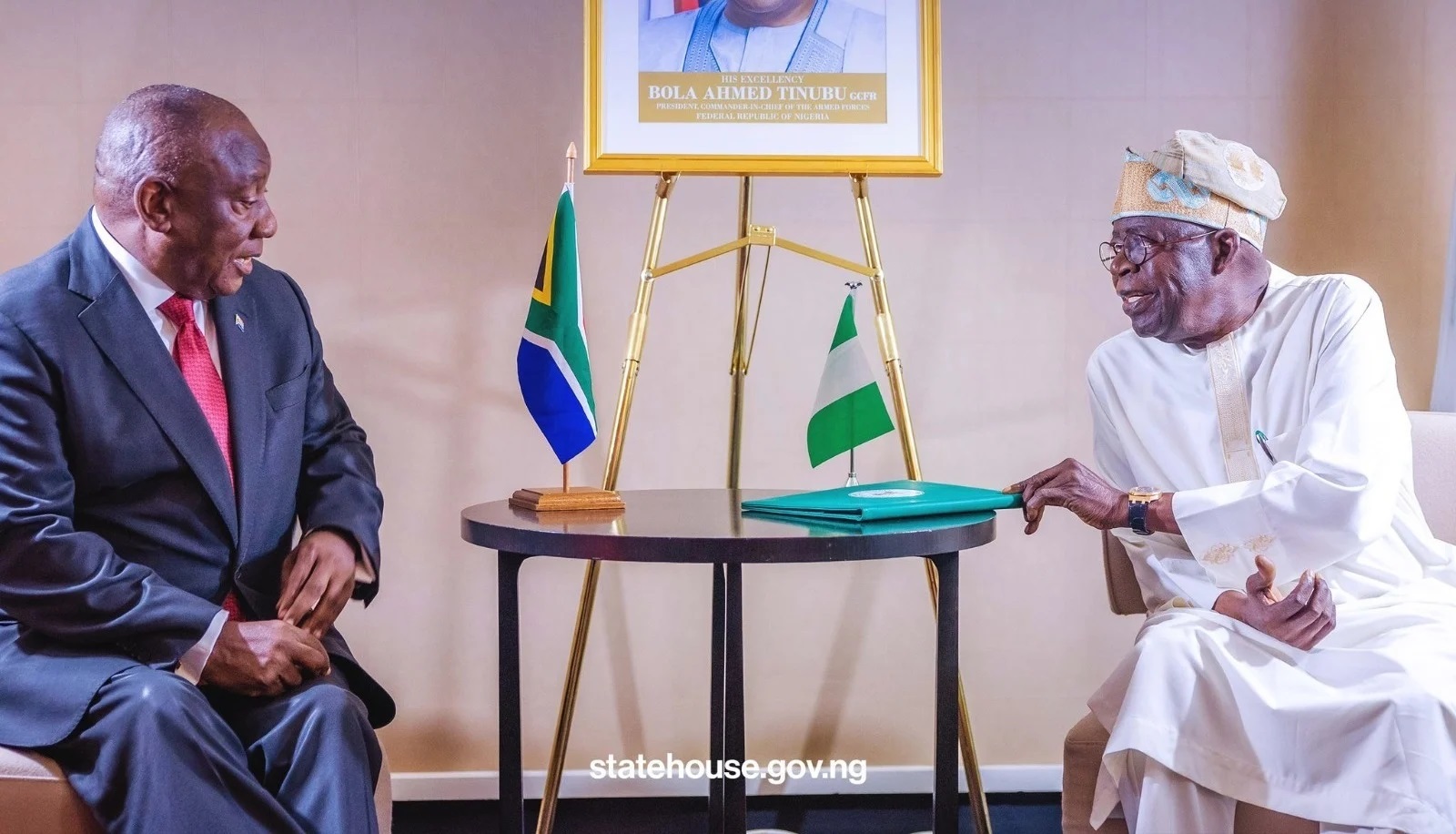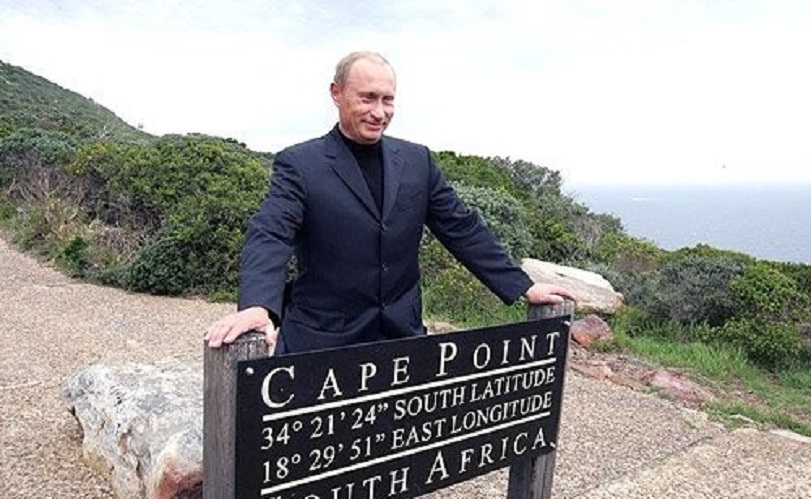Feature/OPED
South Africa BRICS Presidency: Challenges and Future Perspectives
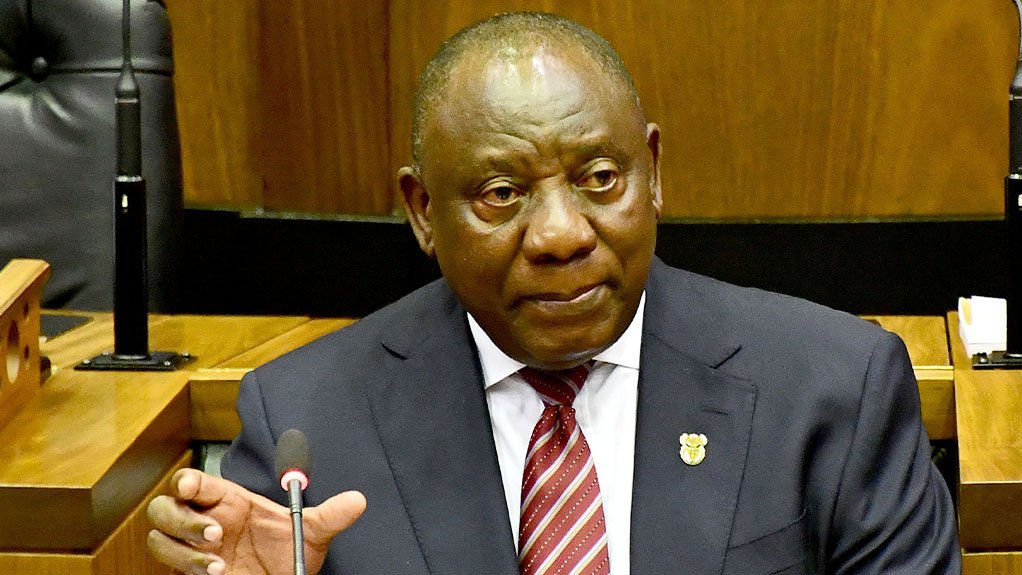
By Kestér Kenn Klomegâh
The next year 2023, South Africa, as per stipulated approved guidelines and rules, will hold the rotating presidency of BRICS, the organization of five emerging developing countries made up of Brazil, Russia, India, China and South Africa. This implies that South African President Cyril Ramaphosa has a lot more at hand, especially with the current global geopolitical changes to drum home, to consolidate the growing support underway for a few others to join BRICS.
Ramaphosa has already reminded us that South Africa will hold the BRICS rotating presidency in 2023. “That BRICS summit next year under the chairship of South Africa, the matter of expanding BRICS is going to be under serious consideration. A number of countries are consistently making approaches to BRICS members, and we have given them the same answer that it will be discussed by the BRICS partners, and thereafter a collective decision will be made.” the president said this December.
Russia’s Foreign Affairs Minister Sergey Lavrov told the gathering at the Primakov Readings forum held this early December that the quintet of BRICS economies (Brazil, Russia, India, China and South Africa) may turn into an organization of 15-17 countries, not just enthusiasm but if those wishing to join it are granted membership based on two principles: have the necessary conditions and the collective decision of the organization.
Lavrov, in his presentation, traced the historical establishment and development of the organization. “We all know that this format [RIC – Russia, India, China] paved the way for the BRICS Five, which currently enjoys great publicity and many countries line up seeking a full-fledged membership,” Lavrov said.
“If we meet all bids, then the ‘five’ will turn into about 15-17 countries as the BRICS summit in June, which was organized in a video conference format by our Chinese colleagues, showed us,” the foreign minister noted, and further stressed that the RIC remains an operational format and not only foreign ministers, but ministers of economy, energy and economic development as well, are meeting within the framework of this format.
“The RIC keeps thriving today, and not many know that this ‘trio’ continues holding meetings at the level of foreign ministers,” Lavrov continued. “Just a couple of months ago, we held such a meeting in the online format, and it was the 20th meeting of this kind since [ex-Foreign Affairs Minister] Yevgeny (Primakov) proposed to keep developing this format.”
“Besides the meetings of foreign ministers, there are meetings of energy, trade and economic development ministers as well as of numerous industrial members of the corresponding governments,” the Russian foreign minister added.
“We have real partners – BRICS, the SCO, the EAEU, and the CSTO, regardless of what is written about it,” Lavrov stated. The top diplomat stated that the RIC structure (Russia, India, China), a Primakov initiative, “spawned the BRICS five, which currently receives enormous attention.” Several states are lined up for full membership, and the five could expand to roughly 15-17 countries, Lavrov added.
Russia’s local Vedomosti reported that the number of BRICS members might triple during the Primakov Readings forum. According to the report, organizations such as BRICS are becoming an alternative against the backdrop of the weakness of the European Union. The emphasis on cooperation with non-Western states appears to be even more warranted in light of Europe’s current problems. The United States and its closest allies’ unjust policy toward key EU members.
Berlin and Paris do not have complete autonomy in international politics; thus, they deliberately cede some of their foreign policy functions to Washington, according to Alexander Kamkin, a Senior Researcher at IMEMO. The expert admits that the European countries are capable of taking the initiative in a few circumstances, but on the whole, they follow Washington’s lead.
According to Andrey Kortunov, Director General of the Russian International Affairs Council, BRICS can provide countries with an alternate partnership path to the EU that does not require a high admission threshold. According to him, the group is now developing along two avenues: by admitting new members and by strengthening cooperation.
In the second case, additional countries will not be admitted to BRICS, but each organization’s partner will be able to choose a convenient mode of cooperation within the BRICS+ structure. Kortunov noted that the EU is unwilling to seek strategic autonomy from the US not only due to the Ukrainian crisis but China’s ascent.
The possibility of expanding membership in the organization is still under discussion within the BRICS framework. Noteworthy to reiterate here that a decision was made at the five BRICS members summit on June 23-24 to launch a discussion for the purposes of determining the principles, standards, criteria and procedures of this process.
China and Russia have been pushing for the expansion of BRICS, soliciting support for the multipolar system of global governance instead of the existing rules-based unipolar directed by the United States. Often explained that a bigger BRICS primarily offers huge opportunities among the group members and for developing countries.
Russian President Vladimir Putin said at a plenary session of the Valdai International Discussion Club held on October 27 reaffirmed Russia’s unshakable support for Saudi Arabia joining BRICS. “Yes, we support it, but this requires a consensus of all the BRICS countries,” he said.
According to him, Saudi Arabia is a rapidly developing country, which is due not only to its leading position in the hydrocarbon market. “This is also due to the fact that the Crown Prince, the government of Saudi Arabia, has very big plans for diversifying the economy, which is very important. They have entire national development plans designed for this goal,” the Russian President said.
He expressed confidence that, given the enthusiasm and creativity of Crown Prince Mohammed bin Salman Al Saud, these plans will be implemented. “Therefore, of course, Saudi Arabia deserves to be a member of major international organizations, such as the BRICS and such as the SCO. Most recently, we determined the status of Saudi Arabia in the SCO and will develop relations with this country both bilaterally and on multilateral platforms,” Putin added.
With the current global unstable and volatile situation creating skyrocketing uncertainties in global economic recovery, China has unreservedly shown its contribution to strengthening BRICS. For 16 years since its inception, China has offered the largest financial support for the BRICS National Development Bank and contributed tremendously to other directions, including health, education and economic collaboration among the group.
That is why BRICS has gained extensive recognition. More and more countries are willing and interested in becoming members of the organization, making joint efforts to overcome difficulties and challenges, and realising common development and prosperity. BRICS activities have expanded during the past few years. Countries participated in the Outreach and BRICS plus segments of the organization. But now, with the emerging new global order, BRICS seeks to expand its membership and consolidate its platform as an instrument for pushing against the existing rules-based order unipolar system.
BRICS activities have expanded during the past few years. Countries participated in the Outreach and BRICS plus segments of the organization. There are also a number of African countries, including Algeria, Egypt, Ethiopia, Nigeria, and Senegal, that have also shown interest. Egypt has already been involved for a fairly long time. Last December 2022, Egypt, the decision on its accession to the New Development Bank was made by BRICS.
Russia has consistently advocated for deepening the organization’s interaction with the African continent, the diplomat stressed. In particular, President of the Russian Federation Vladimir Putin mentioned this at an expanded meeting of leaders of the five BRICS member-states in the BRICS plus format on June 24. It is, however, expected that this avenue of efforts will get an extra impetus during the presidency period of South Africa in 2023.
On May 19, China’s State Councillor and Foreign Minister Wang Yi chaired a video conference dialogue between foreign ministers of BRICS countries and their counterparts from emerging economies and developing countries. It was the first BRICS Plus dialogue at the level of foreign ministers. Participants in the dialogue came from BRICS countries as well as invited countries such as Kazakhstan, Saudi Arabia, Argentina, Egypt, Indonesia, Nigeria, Senegal, United Arab Emirates and Thailand.
According to Wang Yi, the dialogue’s importance was to further expand cooperation between the BRICS countries and other emerging economies and developing countries. In addition, Wang Wenbin, during his weekly media briefing on October 20, explained that as the BRICS chair for this year, China has actively supported the BRICS in starting the membership expansion process and advanced the BRICS Plus cooperation.
During the 14th BRICS summit successfully held in June 2022, President Xi Jinping noted at the meeting that BRICS countries gather not in a closed club or an exclusive circle but in a big family of mutual support and a partnership for win-win cooperation. At the summit, BRICS leaders reached important common understandings about BRICS expansion and expressed support for discussion on the standards and procedures of the expansion.
“This has been well received in the international community, and many countries have expressed interest in joining the BRICS. China supports and welcomes this. Going forward, China will work with fellow BRICS members to steadily proceed with the BRICS expansion process and enable more partners to join this promising endeavour,” Wenbin said at the media briefing.
Despite its large population of 1.5 billion, which many have considered an impediment, China pursues admirable collaborative strategic diplomacy with external countries, and that has made it attain superpower status over Russia. A careful study and analysis monitored by this author vividly show that muscle-flexing Russia largely lacks public outreach diplomacy, Russia contributing towards its own ‘cancel culture’ policy, and this is seriously detrimental to the emerging new global order.
South Africa was a late minor addition to the group, to add a bridgehead to Africa, says Charles Robertson, Chief Economist at Renaissance Capital. All the BRICS countries are facing economic challenges that need addressing urgently. The BRICS is keenly aware of the importance of contributing to Africa’s development agenda.
“Therefore, it could expand because the BRICS are under-represented in the global financial architecture. Europe and the United States dominate institutions like the International Monetary Fund (IMF) and the World Bank, and to some extent many others,” explained Robertson in an emailed query.
According to him, “Russia and others in the BRICS would like to see larger power centres emerge to offer an alternative to that Western-dominated construct. That is reasonable enough – providing there are countries with the money to backstop the new institutions, such as China supporting the BRICS bank, and if the countries offer an alternative vision that provides benefits to new members.”
South African Ramaphosa has repeatedly said that BRICS as a dynamic group would usher in a new global development era that promises a system of more inclusive, sustainable and fair principles. BRICS group, in an expanded form, can support a sustainable and equitable global economic recovery.
For South Africa, Ramaphosa further believes that the BRICS is simply a highly-valuable platform fixed to strengthen ties with partner countries in support of South Africa’s economic growth for discussing global economic problems and challenges and, above all, strengthening the role of developing countries.
After his official visit to Saudi Arabia in mid-October, Ramaphosa said that Crown Prince Mohammed bin Salman Al Saud had expressed the desire to join BRICS. “The Crown Prince did express Saudi Arabia’s desire to be part of BRICS. They are not the only country seeking membership in BRICS,” according to the local radio station ABC. That report said Argentina, Iran, Turkey and the UAE also voiced their intention to join the organization.
The BRICS embody a synergy of cultures and are a model of genuine multilateral diplomacy. Its structure is formed in compliance with the 21st century’s realities. Efforts within its framework are based on the principles of equality, mutual respect and justice.
Historically, the first meeting of the group began in St Petersburg in 2005. It was called RIC, which stood for Russia, India and China. Then later, Brazil joined and finally, South Africa in February 2011, which is why now it is referred to as BRICS. The acronym BRICS is derived from the member countries’ names in English. The BRICS (Brazil, Russia, India, China and South Africa) collectively represent about 26% of the world’s geographical area and about 42% of the world’s population.
Feature/OPED
How Christians Can Stay Connected to Their Faith During This Lenten Period

It’s that time of year again, when Christians come together in fasting and prayer. Whether observing the traditional Lent or entering a focused period of reflection, it’s a chance to connect more deeply with God, and for many, this season even sets the tone for the year ahead.
Of course, staying focused isn’t always easy. Life has a way of throwing distractions your way, a nosy neighbour, a bus driver who refuses to give you your change, or that colleague testing your patience. Keeping your peace takes intention, and turning off the noise and staying on course requires an act of devotion.
Fasting is meant to create a quiet space in your life, but if that space isn’t filled with something meaningful, old habits can creep back in. Sustaining that focus requires reinforcement beyond physical gatherings, and one way to do so is to tune in to faith-based programming to remain spiritually aligned throughout the period and beyond.
On GOtv, Christian channels such as Dove TV channel 113, Faith TV and Trace Gospel provide sermons, worship experiences and teachings that echo what is being practised in churches across the country.
From intentional conversations on Faith TV on GOtv channel 110 to true worship on Trace Gospel on channel 47, these channels provide nurturing content rooted in biblical teaching, worship, and life application. Viewers are met with inspiring sermons, reflections on scripture, and worship sessions that help form a rhythm of devotion. During fasting periods, this kind of consistent spiritual input becomes a source of encouragement, helping believers stay anchored in prayer and mindful of God’s presence throughout their daily routines.
To catch all these channels and more, simply subscribe, upgrade, or reconnect by downloading the MyGOtv App or dialling *288#. You can also stream anytime with the GOtv Stream App.
Plus, with the We Got You offer, available until 28th February 2026, subscribers automatically upgrade to the next package at no extra cost, giving you access to more channels this season.
Feature/OPED
Turning Stolen Hardware into a Data Dead-End

By Apu Pavithran
In Johannesburg, the “city of gold,” the most valuable resource being mined isn’t underground; it’s in the pockets of your employees.
With an average of 189 cellphones reported stolen daily in South Africa, Gauteng province has become the hub of a growing enterprise risk landscape.
For IT leaders across the continent, a “lost phone” is rarely a matter of a misplaced device. It is frequently the result of a coordinated “snatch and grab,” where the hardware is incidental, and corporate data is the true objective.
Industry reports show that 68% of company-owned device breaches stem from lost or stolen hardware. In this context, treating mobile security as a “nice-to-have” insurance policy is no longer an option. It must function as an operational control designed for inevitability.
In the City of Gold, Data Is the Real Prize
When a fintech agent’s device vanishes, the $300 handset cost is a rounding error. The real exposure lies in what that device represents: authorised access to enterprise systems, financial tools, customer data, and internal networks.
Attackers typically pursue one of two outcomes: a quick wipe for resale on the secondary market or, far more dangerously, a deep dive into corporate apps to extract liquid assets or sellable data.
Clearly, many organisations operate under the dangerous assumption that default manufacturer security is sufficient. In reality, a PIN or fingerprint is a flimsy barrier if a device is misconfigured or snatched while unlocked. Once an attacker gets in, they aren’t just holding a phone; they are holding the keys to copy data, reset passwords, or even access admin tools.
The risk intensifies when identity-verification systems are tied directly to the compromised device. Multi-Factor Authentication (MFA), widely regarded as a gold standard, can become a vulnerability if the authentication factor and the primary access point reside on the same compromised device. In such cases, the attacker may not just have a phone; they now have a valid digital identity.
The exposure does not end at authentication. It expands with the structure of the modern workforce.
65% of African SMEs and startups now operate distributed teams. The Bring Your Own Device (BYOD) culture has left many IT departments blind to the health of their fleet, as personal devices may be outdated or jailbroken without any easy way to know.
Device theft is not new in Africa. High-profile incidents, including stolen government hardware, reinforce a simple truth: physical loss is inevitable. The real measure of resilience is whether that loss has any residual value. You may not stop the theft. But you can eliminate the reward.
Theft Is Inevitable, Exposure is Not
If theft cannot always be prevented, systems must be designed so that stolen devices yield nothing of consequence. This shift requires structured, automated controls designed to contain risk the moment loss occurs.
Develop an Incident Response Plan (IRP)
The moment a device is reported missing, predefined actions should trigger automatically: access revocation, session termination, credential reset and remote lock or wipe.
However, such technical playbooks are only as fast as the people who trigger them. Employees must be trained as the first line of defence —not just in the use of strong PINs and biometrics, but in the critical culture of immediate reporting. In high-risk environments, containment windows are measured in minutes, not hours.
Audit and Monitor the Fleet Regularly
Control begins with visibility. Without a continuous, comprehensive audit, IT teams are left responding to incidents after damage has occurred.
Opting for tools like Endpoint Detection and Response (EDR) allows IT teams to spot subtle, suspicious activities or unusual access attempts that signal a compromised device.
Review Device Security Policies
Security controls must be enforced at the management layer, not left to user discretion. Encryption, patch updates and screen-lock policies should be mandatory across corporate devices.
In BYOD environments, ownership-aware policies are essential. Corporate data must remain governed by enterprise controls regardless of device ownership.
Decouple Identity from the Device
Legacy SMS-based authentication models introduce avoidable risk when the authentication channel resides on the compromised handset. Stronger identity models, including hardware tokens, reduce this dependency.
At the same time, native anti-theft features introduced by Apple and Google, such as behavioural theft detection and enforced security delays, add valuable defensive layers. These controls should be embedded into enterprise baselines rather than treated as optional enhancements.
When Stolen Hardware Becomes Worthless
With POPIA penalties now reaching up to R10 million or a decade of imprisonment for serious data loss offences, the Information Regulator has made one thing clear: liability is strict, and the financial fallout is absolute. Yet, a PwC survey reveals a staggering gap: only 28% of South African organisations are prioritising proactive security over reactive firefighting.
At the same time, the continent is battling a massive cybersecurity skills shortage. Enterprises simply do not have the boots on the ground to manually patch every vulnerability or chase every “lost” terminal. In this climate, the only viable path is to automate the defence of your data.
Modern mobile device management (MDM) platforms provide this automation layer.
In field operations, “where” is the first indicator of “what.” If a tablet assigned to a Cape Town district suddenly pings on a highway heading out of the city, you don’t need a notification an hour later—you need an immediate response. An effective MDM system offers geofencing capabilities, automatically triggering a remote lock when devices breach predefined zones.
On Supervised iOS and Android Enterprise devices, enforced Factory Reset Protection (FRP) ensures that even after a forced wipe, the device cannot be reactivated without organisational credentials, eliminating resale value.
For BYOD environments, we cannot ignore the fear that corporate oversight equates to a digital invasion of personal lives. However, containerization through managed Work Profiles creates a secure boundary between corporate and personal data. This enables selective wipe capabilities, removing enterprise assets without intruding on personal privacy.
When integrated with identity providers, device posture and user identity can be evaluated together through multi-condition compliance rules. Access can then be granted, restricted, or revoked based on real-time risk signals.
Platforms built around unified endpoint management and identity integration enable this model of control. At Hexnode, this convergence of device governance and identity enforcement forms the foundation of a proactive security mandate. It transforms mobile fleets from distributed risk points into centrally controlled assets.
In high-risk environments, security cannot be passive. The goal is not recovery. It is irrelevant, ensuring that once a device leaves authorised hands, it holds no data, no identity leverage, and no operational value.
Apu Pavithran is the CEO and founder of Hexnode
Feature/OPED
Daniel Koussou Highlights Self-Awareness as Key to Business Success

By Adedapo Adesanya
At a time when young entrepreneurs are reshaping global industries—including the traditionally capital-intensive oil and gas sector—Ambassador Daniel Koussou has emerged as a compelling example of how resilience, strategic foresight, and disciplined execution can transform modest beginnings into a thriving business conglomerate.
Koussou, who is the chairman of the Nigeria Chapter of the International Human Rights Observatory-Africa (IHRO-Africa), currently heads the Committee on Economic Diplomacy, Trade and Investment for the forum’s Nigeria chapter. He is one of the young entrepreneurs instilling a culture of nation-building and leadership dynamics that are key to the nation’s transformation in the new millennium.
The entrepreneurial landscape in Nigeria is rapidly evolving, with leaders like Koussou paving the way for innovation and growth, and changing the face of the global business climate. Being enthusiastic about entrepreneurship, Koussou notes that “the best thing that can happen to any entrepreneur is to start chasing their dreams as early as possible. One of the first things I realised in life is self-awareness. If you want to connect the dots, you must start early and know your purpose.”
Successful business people are passionate about their business and stubbornly driven to succeed. Koussou stresses the importance of persistence and resilience. He says he realised early that he had a ‘calling’ and pursued it with all his strength, “working long weekends and into the night, giving up all but necessary expenditures, and pressing on through severe setbacks.”
However, he clarifies that what accounted for an early success is not just tenacity but also the ability to adapt, to recognise and respond to rapidly changing markets and unexpected events.
Ambassador Koussou is the CEO of Dau-O GIK Oil and Gas Limited, an indigenous oil and natural gas company with a global outlook, delivering solutions that power industries, strengthen communities, and fuel progress. The firm’s operations span exploration, production, refining, and distribution.
Recognising the value of strategic alliances, Koussou partners with business like-minds, a move that significantly bolsters Dau-O GIK’s credibility and capacity in the oil industry. This partnership exemplifies the importance of building strong networks and collaborations.
The astute businessman, who was recently nominated by the African Union’s Agenda 2063 as AU Special Envoy on Oil and Gas (Continental), admonishes young entrepreneurs to be disciplined and firm in their decision-making, a quality he attributed to his success as a player in the oil and gas sector. By embracing opportunities, building strong partnerships, and maintaining a commitment to excellence, Koussou has not only achieved personal success but has also set a benchmark for future generations of African entrepreneurs.
His journey serves as a powerful reminder that with determination and vision, success is within reach.
-

 Feature/OPED6 years ago
Feature/OPED6 years agoDavos was Different this year
-
Travel/Tourism10 years ago
Lagos Seals Western Lodge Hotel In Ikorodu
-

 Showbiz3 years ago
Showbiz3 years agoEstranged Lover Releases Videos of Empress Njamah Bathing
-

 Banking8 years ago
Banking8 years agoSort Codes of GTBank Branches in Nigeria
-

 Economy3 years ago
Economy3 years agoSubsidy Removal: CNG at N130 Per Litre Cheaper Than Petrol—IPMAN
-

 Banking3 years ago
Banking3 years agoSort Codes of UBA Branches in Nigeria
-

 Banking3 years ago
Banking3 years agoFirst Bank Announces Planned Downtime
-

 Sports3 years ago
Sports3 years agoHighest Paid Nigerian Footballer – How Much Do Nigerian Footballers Earn


